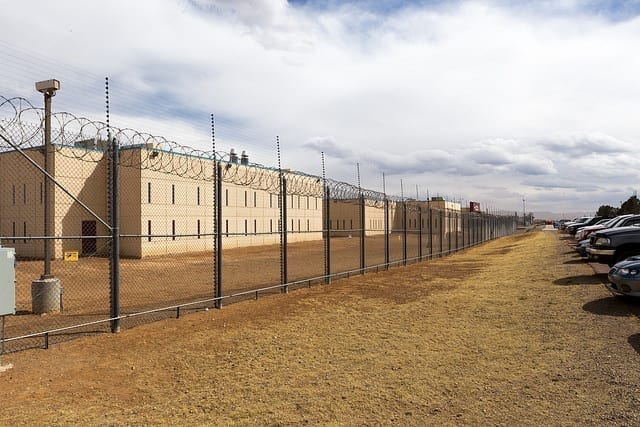Startling internal communications convinced a U.S. judge to change her mind and certify the class.
A federal judge has granted class action status to shareholders suing private prison contractor CoreCivic.
A federal judge has granted class action status to shareholders suing private prison contractor CoreCivic.
The lawsuit claims the Nashville-based corporation committed securities fraud, withholding information about its operations and staffing woes from shareholders. According to The Tennessean, CoreCivic, formerly called the Corrections Corp. of America, may have made false and misleading statements relating to safety, security and all-around effectiveness.
It also alleges that CoreCivic committed securities fraud violations.
Among the defendants named in the case are CEO Damon Hinninger, David Garfinkle, Todd Millenger and Harley Lappin.
Per the Tennessean, the suit concerns an announcement made midway through August of 2016. At the time, the U.S. Justice Department published and circulated a memo suggesting that the federal government diminish and eventually phase out its contracts with private prison operators.

In the memo, former U.S. Deputy Attorney General Sally Q. Yates criticized and questioned the safety record of companies like CoreCivic, which have been accused of dangerously under-staffing its facilities and providing inadequate health care to convicts.
Yates’ conclusions were based largely upon a report requisitioned by the Office of the Inspector General, which evaluated contractor operations against facilities maintained by the federal government. The Tennessean notes that the OIG found that ‘privately run prisons had more safety and security incidents per capita than those run by the bureau of prisons and that CoreCivic prisons had the highest rates of fights and inmate-on-inmate assaults.’
Not surprisingly, Yates’ announcement, coupled with the OIG’s appraisal, caused CoreCivic shares to plummet. Just months early, CEO Hinninger told shareholders that company facilities “[meet] the needs of our government partners” and that CoreCivic has a “strong record of operational excellence.”
However, the Bureau of Prisons had purportedly warned CoreCivic about its “inadequate staff” and “failures to provide sufficient medical services to inmates” as early as 2015.
That warning explicitly cautioned that, unless CoreCivic improved its health services, the federal government would consider terminating its contract.
Internal communications partially recounted by The Tennessean show CoreCivic staffers worriedly e-mailing one another, speculating about the financial fallout of the BOP’s 2015 health services audit. Despite general panic, Hinninger went on to tell shareholders that the corporation was “providing high quality and standard and consistent services” to government “partners.”
CoreCivic, in its defense, claims the shareholder suit is “entirely without merit.”
However, U.S. District Judge Aleta Trauger, who ruled in favor of the class certification, is the same judge who earlier denied the suit’s evolution. Her decision, reports NewsChannel9.com, was influenced by CoreCivic’s internal communications, which demonstrated a discord between what Hinninger was telling shareholders and what corporate employees themselves knew.
Trauger’s Tuesday judgment said: “CoreCivic and its executives, as might be expected, typically portrayed its services in a positive light to shareholders.
“The statements at issue here, however, frequently went beyond generic puffery to claims that their services were of a high quality, specifically, in the eyes of their government clients.”
CoreCivic remains among the nation’s largest private prison contractors, owning or managing some 54 detention facilities spread across the country.
Sources
CoreCivic shareholders gain class action status in securities fraud lawsuit against private prisons company
Judge grants class action status in lawsuit against private prison operator CoreCivic


Join the conversation!